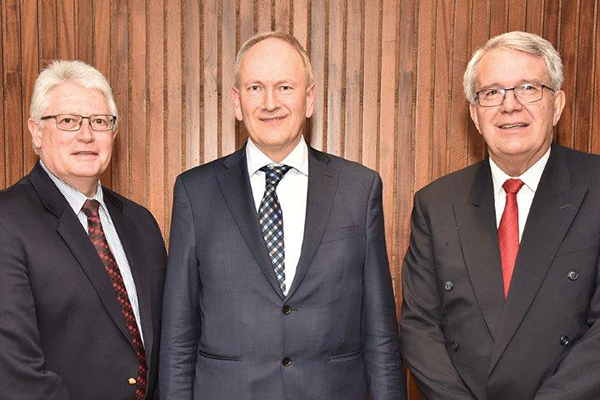Latest News Archive
Please select Category, Year, and then Month to display items
04 April 2024
|
Story Lunga Luthuli
|
Photo SUPPLIED
 Dr Juliet Kamwendo champions gender-inclusive climate action in Africa. Her expertise at the recently held AFR100 workshop highlighted vital steps towards sustainable and equitable development.
Dr Juliet Kamwendo champions gender-inclusive climate action in Africa. Her expertise at the recently held AFR100 workshop highlighted vital steps towards sustainable and equitable development.
Dr Juliet Kamwendo, Lecturer and Programme Director for Gender Studies in the Centre for Gender and Africa Studies at the University of the Free State, is spearheading efforts to integrate gender considerations into Africa's climate restoration agenda. Reflecting on her involvement, Dr Kamwendo stated, "This is particularly crucial, as women make up almost 50% of the population in Africa, and the depletion and degradation of land affect them disproportionately."
She recently served as a gender expert at the AUDA-NEPAD AFR100 workshop in Ouagadougou, Burkina Faso, from 25 to 29 March 2024. This initiative aims to restore forests and degraded land across Africa by 2030, with a focus on gender equality.
The workshop emphasised the integration of gender perspectives into the AFR100 project, acknowledging the disproportionate impact of land degradation on women. Dr Kamwendo's expertise highlighted the need to empower women in climate change interventions, addressing existing gender inequalities exacerbated by environmental degradation.
“Women – who are primarily responsible for household food security and water provision – bear the brunt of environmental degradation, leading to increased workloads, reduced income opportunities, and heightened vulnerability to climate-related disasters. Furthermore, the loss of forest cover and biodiversity further exacerbates the challenges faced by women, particularly in rural areas where they depend heavily on natural resources for their livelihoods,” added Dr Kamwendo.
Her participation highlights academia's crucial role in fostering inclusive and sustainable development, emphasising interdisciplinary collaboration to tackle complex environmental challenges. Through initiatives such as AFR100, stakeholders are working towards a more resilient and gender-responsive future for Africa.
Tutu-Jonker Prestige Lecture Series tackles reconciliation
2017-11-13

Prof Rian Venter; Prof Eddy van der Borght, guest speaker from Vrije
Universiteit, Amsterdam; and Prof Fanie Snyman, Dean of the Faculty
of Theology and Religion at the UFS.
Photo: Supplied
The Faculty of Theology and Religion recently hosted the annual Tutu-Jonker Prestige Lecture Series at the Bloemfontein Campus of the University of the Free State (UFS). The purpose of the lecture series is to address modern-day and pressing social challenges from a theological and religious perspective.
With the theme Religions and reconciliation of conflicting identities, guest speaker and Desmond Tutu Chair on reconciliation at the Faculty of Theology: Vrije Universiteit Amsterdam, Prof Eddy van der Borght, spoke about the reformation in the context of shifting European identity formations.
Reconciliation versus social identity
“My focus is on what the Christian concept of reconciliation means for reconciliation in society,” said Prof Van der Borght. He deliberated the global problem of conflict generated by diverse social identities. He also emphasised that religion has huge resources to contribute towards overcoming conflicting identities.
“The theory is that religions know about reconciliation, while in practice it is much more complicated, because often religions are part of the problem of conflict,” he says. He said religions are often the problem in social cultural identities, especially regarding conflict involving different nations, racial, and ethnic groups.
Honouring prominent theologians Tutu and Jonker
The name Tutu-Jonker originates from the two theologians, Emeritus Archbishop Desmond Tutu and the late Prof Willie Jonker, who are both regarded as prominent theologians known for their emphasis on reconciliation in South Africa. The significance of combining the two names is said to bring together two different theological traditions (Anglican and Reformed), cultural groups, and races.
Prof Fanie Snyman, Dean of the Faculty of Theology and Religion, said, “This will also serve the purpose of a welcoming culture at the faculty, embracing diversity and embodying reconciliation.” Both of these theologians received honorary doctorates in Theology from the UFS.